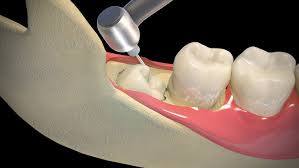The Essential Guide to Omega-3 Vegan Supplements
Introduction
Omega-3 fatty acids are essential fats that play a critical role in maintaining various bodily functions, including heart health, brain function, and inflammation reduction. Traditionally, omega-3 supplements have been sourced from fish oil, posing a challenge for those following a vegan or plant-based diet. Fortunately, the rise of omega-3 vegan supplement offers an effective alternative for those seeking to reap the benefits of these essential fatty acids without compromising their dietary principles. This article explores the importance of omega-3s, the best vegan sources, and tips for choosing the right supplement.
The Importance of Omega-3 Fatty Acids
Omega-3 fatty acids consist of three main types: ALA (alpha-linolenic acid), EPA (eicosapentaenoic acid), and DHA (docosahexaenoic acid).
- ALA: Found primarily in plant oils, ALA is a precursor to EPA and DHA. However, the conversion rate of ALA to EPA and DHA in the human body is relatively low, making direct sources of EPA and DHA important.
- EPA and DHA: These are primarily found in marine sources and are directly utilized by the body. They are crucial for reducing inflammation, supporting heart health, and maintaining brain function.
Health Benefits of Omega-3s
- Heart Health: Omega-3s help reduce triglycerides, lower blood pressure, and prevent the formation of arterial plaques, significantly reducing the risk of heart disease.
- Brain Function: DHA is a major structural component of the brain, and adequate levels are associated with a reduced risk of cognitive decline and neurodegenerative diseases.
- Anti-inflammatory Properties: Omega-3s can help manage inflammatory conditions such as arthritis and inflammatory bowel disease.
- Eye Health: DHA is also a key component of the retina, and sufficient intake can help prevent macular degeneration and other vision problems.
Vegan Sources of Omega-3 Fatty Acids
1. Algal Oil
Algal oil, derived from algae, is one of the most potent vegan sources of DHA and EPA. It is a direct source, meaning the body does not need to convert ALA into DHA and EPA. Algal oil supplements are highly effective for maintaining adequate levels of these essential fatty acids.
2. Flaxseeds and Flaxseed Oil
Flaxseeds are rich in ALA, and their oil is a concentrated source. One tablespoon of flaxseed oil contains about 7.26 grams of ALA. While the conversion rate to EPA and DHA is low, flaxseeds are still a valuable addition to a vegan diet.
3. Chia Seeds
Chia seeds are another excellent source of ALA. They are versatile and can be easily incorporated into various meals, from smoothies to baked goods. One ounce of chia seeds contains about 5 grams of ALA.
4. Hemp Seeds
Hemp seeds offer a well-balanced ratio of omega-3 to omega-6 fatty acids. They contain about 2.5 grams of ALA per three tablespoons and are easy to add to salads, yogurts, and smoothies.
5. Walnuts
Walnuts are a convenient snack that provides approximately 2.5 grams of ALA per ounce. They can be consumed on their own or added to dishes like oatmeal and salads.
Choosing the Right Omega-3 Vegan Supplement
When selecting an omega-3 vegan supplement, consider the following factors:
- Type of Omega-3s: Ensure the supplement provides both DHA and EPA, which are crucial for optimal health. Algal oil is the best source for these fatty acids.
- Dosage: Check the dosage to ensure it meets your daily omega-3 requirements. Most experts recommend at least 250-500 mg of combined EPA and DHA per day for adults.
- Purity and Quality: Choose supplements that are free from contaminants such as heavy metals and pesticides. Look for products that have been third-party tested for purity and potency.
- Sustainability: Opt for supplements made from sustainably sourced ingredients to minimize environmental impact. Algal oil is a sustainable choice since it is harvested from algae rather than fish.
- Form and Flavor: Consider whether you prefer capsules, softgels, or liquid forms. Some supplements also come with added flavors to mask the taste of algal oil.
Incorporating Omega-3 Vegan Supplements into Your Diet
To maximize the benefits of omega-3 vegan supplements, incorporate them into your daily routine consistently. Here are a few tips:
- With Meals: Take your supplement with meals that contain healthy fats to enhance absorption.
- Morning Routine: Include your omega-3 supplement in your morning routine to establish a consistent habit.
- Combine with Whole Foods: While supplements are beneficial, continue to consume omega-3-rich whole foods like flaxseeds, chia seeds, and walnuts to ensure a balanced intake.
Conclusion
Omega-3 fatty acids are essential for maintaining overall health, and vegan supplements provide an effective and sustainable way to meet your nutritional needs. By choosing high-quality algal oil supplements and incorporating them into a balanced diet rich in ALA sources, vegans can enjoy the full spectrum of omega-3 benefits. Whether for heart health, brain function, or inflammation reduction, omega-3 vegan supplements are a valuable addition to any plant-based diet, supporting both personal well-being and environmental sustainability.



